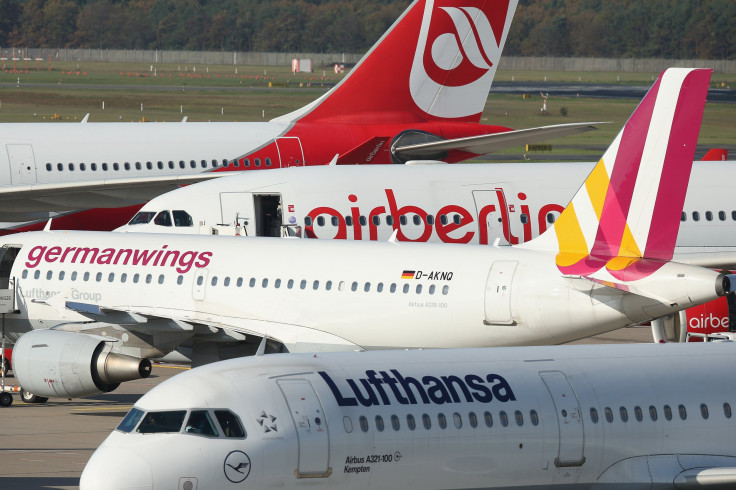Germanwings Is An Example Of European Carriers Trying To Compete In The Budget Airline Game

Germanwings, the airline operating Flight 9525 that crashed in the French Alps Tuesday, may not be well known outside Europe. But the low-cost carrier owned by Lufthansa Group is emblematic of a trend many flag carriers in Europe are embracing: launching their own budget airlines for short-haul flights to compete with wildly successful low-cost carriers that have snatched 26 percent of market share in Europe.
“It’s a defensive move to help the European flag airlines protect their market share and revenue against budget airlines like Ryanair and EasyJet,” airline industry analyst Henry Harteveldt said. “They have launched their own budget airlines as point-to-point carriers predominantly outside primary hubs and gateway cities.”
Other examples include Air France’s Hop! and KLM’s Transavia Airlines, which are focused on leisure travelers within Europe. There is a difference, however, between airlines like Lufthansa and their American counterparts that have tried the same strategy. Delta, for example, launched Song in 2003 (it folded in 2006), while United operated Ted from 2004 to 2009.
“Major European airlines have generally preferred to buy existing low-cost carriers instead of starting low-cost subsidiaries from scratch,” said Maxwell Leitschuh, transportation analyst at iJET International. “By contrast, major U.S. carriers have generally tried to start their own low-cost subsidiaries from scratch, all of which have failed.”
Germanwings, which is based in Cologne, is one such example. The low-cost airline carried more than 16 million passengers in 2013 and was started in 2002 as a subsidiary of German regional carrier Eurowings, which was subsequently acquired by Lufthansa in 2009. Lufthansa used Eurowings as a feeder airline under the Lufthansa Regional brand and used Germanwings as its low-cost carrier. Lufthansa later shifted all of its short-haul, nonhub flights -- those not flying through Munich or Frankfurt -- to Germanwings in 2012.
Several other airlines in Europe have followed similar models, said Leitschuh. “Notable examples include Lufthansa buying Germanwings, Iberia buying Vueling, Alitalia buying Volare, and KLM buying Transavia.”
Another reason European carriers may have been more successful in their budget ventures than American airlines is that the low-cost carriers in Europe seem to actually be independent of their parent airlines.
“In the U.S., where airlines have tried this airline within an airline model, it hasn’t worked,” Harteveldt said. “What’s different in the European cases is that they are truly separate airlines with their own operating certificates, policies, flight manuals, things like that. So they’re really independent of the larger long-haul flag airline.”
That independence has allowed them to save on cost, Harteveldt said. For example, it’s unlikely that Germanwings pilots and flight crew are paid as handsomely as Lufthansa employees. Of course, he adds, that’s also “a source of labor strife within these airline groups” -- as evidenced by the pilot strikes plaguing Lufthansa.
But, experts caution, low-cost doesn’t mean scrimping on safety. All airlines in Europe must adhere to the same safety standards, and the German aviation industry, and Lufthansa in particular, is known for its sober approach.
Airline industry analysts said it has a good safety record. The airline has not been involved in any previous known accidents, FlightSafe said. The German airline industry in general is synonymous with taking judicious safety precautions. Germanwings has had no previous accidents, the Aviation Safety Network reported. In fact, Tuesday’s incident is the first of its kind among the budget airlines operated by European flag carriers. And established low-cost carriers like Ryanair and EasyJet have clean safety records, as well.
Lufthansa announced in November it would actually eliminate the Germanwings brand and instead relaunch Eurowings, which would take over Germanwings flights, as a separate brand. Lufthansa’s goal is to expand its low-cost arm beyond Germany and compete with other regional budget carriers. That move may not come soon enough for Germanwings, which until now, had a sterling record.
© Copyright IBTimes 2024. All rights reserved.





















